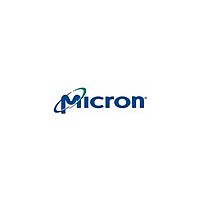NAND512R3A2SZA6E Micron Technology Inc, NAND512R3A2SZA6E Datasheet - Page 28

NAND512R3A2SZA6E
Manufacturer Part Number
NAND512R3A2SZA6E
Description
Manufacturer
Micron Technology Inc
Datasheet
1.NAND512R3A2SZA6E.pdf
(51 pages)
Specifications of NAND512R3A2SZA6E
Cell Type
NAND
Density
512Mb
Access Time (max)
15us
Interface Type
Parallel
Boot Type
Not Required
Address Bus
26b
Operating Supply Voltage (typ)
1.8V
Operating Temp Range
-40C to 85C
Package Type
VFBGA
Sync/async
Asynchronous
Operating Temperature Classification
Industrial
Operating Supply Voltage (min)
1.7V
Operating Supply Voltage (max)
1.95V
Word Size
8b
Number Of Words
64M
Supply Current
15mA
Mounting
Surface Mount
Pin Count
63
Lead Free Status / Rohs Status
Supplier Unconfirmed
Available stocks
Company
Part Number
Manufacturer
Quantity
Price
Part Number:
NAND512R3A2SZA6E
Manufacturer:
MICRO
Quantity:
20 000
Software algorithms
7
7.1
7.2
28/51
Software algorithms
This section gives information on the software algorithms that Numonyx recommends to
implement to manage the bad blocks and extend the lifetime of the NAND device.
NAND Flash memories are programmed and erased by Fowler-Nordheim tunneling using a
high voltage. Exposing the device to a high voltage for extended periods can cause the
oxide layer to be damaged. For this reason, the number of program and erase cycles is
limited (see
and it is recommended to implement garbage collection, a wear-leveling algorithm and an
error correction code, to extend the number of program and erase cycles and increase the
data retention.
To help integrate a NAND memory into an application Numonyx can provide a full range of
software solutions: file system, sector management, drivers, and code management.
Contact the nearest Numonyx sales office or visit www.numonyx.com for more details.
Bad block management
Devices with bad blocks have the same quality level and the same AC and DC
characteristics as devices where all the blocks are valid. A bad block does not affect the
performance of valid blocks because it is isolated from the bit line and common source line
by a select transistor.
The devices are supplied with all the locations inside valid blocks erased (FFh). The bad
block information is written prior to shipping. Any block, where the 1st and 6th Bytes (x8
device)/1st Word (x16 device), in the spare area of the 1st page, does not contain FFh is a
bad block.
The bad block information must be read before any erase is attempted as the bad block
information may be erased. For the system to be able to recognize the bad blocks based on
the original information it is recommended to create a bad block table following the flowchart
shown in
NAND Flash memory failure modes
Over the lifetime of the device additional bad blocks may develop.
To implement a highly reliable system, all the possible failure modes must be considered:
l
l
Program/erase failure: in this case the block has to be replaced by copying the data to
a valid block. These additional bad blocks can be identified as attempts to program or
erase them will give errors in the status register.
As the failure of a page program operation does not affect the data in other pages in the
same block, the block can be replaced by re-programming the current data and
copying the rest of the replaced block to an available valid block. The Copy Back
Program command can be used to copy the data to a valid block. See
Copy back program
Read failure: in this case, ECC correction must be implemented. To efficiently use the
memory space, it is mandatory to recover single-bit errors, which occur during read
operations, by using ECC without replacing the whole block.
Figure
Table 15: Program, erase times and program erase endurance cycles
15.
for more details
210403 - Rev 3
Numonyx SLC SP 70 nm
Section 6.4:
for value)

















